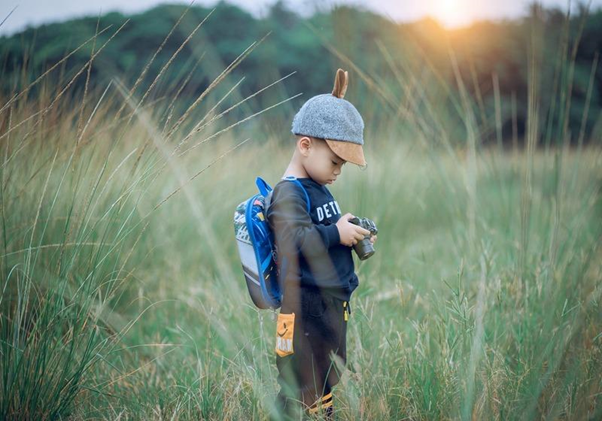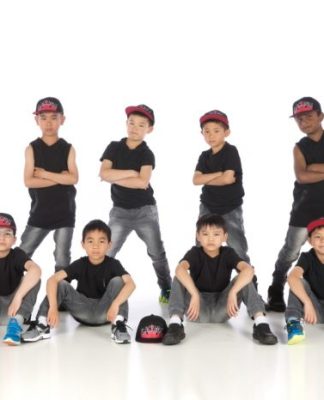Have you ever heard of life skills for children? When starting to take on the responsibility of being a parent, surely with their boundless love, every parent wants to protect, nurture and create a good living environment for their children. However, there is a remarkable fact that if the child is more protective, when he grows up, he will gradually lose the ability to be independent , to face unexpected situations on his own. Therefore, equipping children with life skills from a young age is extremely necessary and helps children gain more confidence when leaving their parents’ arms.
Here are important life skills that any parent should prepare for their child in the first years of life. Let’s consult together now!
Why do parents need to practice life skills for their children?
What are life skills?
Life skills are personal skills to deal with work or life situations in the most effective way. From the knowledge they have learned, children know how to apply that knowledge in real life; Psychosocial skills to manage yourself or interact with people around, …
What do life skills include?
As society develops, life skills also become diverse and rich. But when applied to life skills education, parents only need to understand some basic skills such as communication , self-protection, self-control, teamwork, etc.

Life skills have a significant impact on the development of children
How important are life skills?
In addition to the knowledge in books, adding children’s life skills is a way to help children develop comprehensively. Practicing life skills for children helps children:
- Know how to behave properly with adults, peers
- Know how to handle dangerous situations that may suddenly occur in a calm, flexible manner.
- Teaching children life skills from a young age also helps them become more confident, active and independent.
- When the parents are not around, the child also has enough knowledge and knows what to do, how to arrange work to be reasonable with the schedule, …
However, children’s life skills also need time for them to learn and practice to be effective and become experiences and habits for children every day. Therefore, in parallel with the teacher’s teaching, parents also need to spend time and have patience to give more instructions to the children at home.
Steps to teach children life skills
What is life skills education? It is simply a teaching job that requires an investment of time and effort. Therefore, parents who have not found a suitable method can refer to the following basic teaching steps:
- Give a specific action to do or not to do for the child.
- Provide knowledge related to that action such as: why should/shouldn’t do, purpose of doing/not doing to learn the lesson, benefits/harms of that action,
- Teach children how to learn, observe, practice, try, …
- Provide hypothetical situations for children to apply knowledge in practice.
- Regularly create a living environment with friends and relatives so that children form good habits from the application of life skills.

You should teach your child the habit of saying thank you when receiving gifts or receiving help from others
Some essential life skills for children that parents should not ignore
1. Teach children the confidence to explore new things
The first thing when building confidence in children is to put their trust in them. Children will trust themselves when mom trusts them too. I believe that if a child can do something, then surely he will do it in the best way. In addition, mothers should also train their children to look at things in a positive way. Encourage children to speak their mind, dare to show their own personality in front of the crowd. At the same time, praise your child’s efforts but in moderation, enough so that he does not lose faith in himself.
To help your child gain confidence, every day parents should also prompt many questions to talk to their children and help them speak their minds. For example, you can ask your baby questions like, “Why do you like this doll?”. “Did you get good grades on the exam today?” … If a child accidentally reveals his/her shortcomings during the conversation such as getting a bad grade, being scolded by a teacher, etc., Parents should not rush to scold the child, but listen to what the child say, and then give advice because loud voice only makes the child more afraid and shy.
2. Teach children communication skills
Communication skills are formed from the time a baby is born, so let’s give the child the freedom to communicate in a comfortable and sociable environment, so that the child can practice his or her communication skills in the best way. Educating life skills by improving communication skills will help a lot when children grow up later.
When teaching communication skills to your child, there is no more effective way than a combination of talking and playing with your child. Parents can spend time every night before going to bed to tell fairy tales, ask about their children’s learning, how about their best friends, etc. On weekends, parents can send their children to crowded places where people can still improve communication skills for children such as: children’s theater, dance and singing classes, zoo, water park, etc. Curiosity at the child’s age will surely stimulate the baby to explore and ask questions constantly.
3. Teamwork skills are very important
A child’s life cannot be without friends or relatives around. It is not easy to exchange and work together as a team in an agreeable, harmonious and united way. Therefore, parents should teach their children teamwork skills by such as: organizing group classes for children with friends at home, letting them learn dancing, acting, reading poetry, etc. so that children have the opportunity to have fun and “work” with many “partners” of different ages and regions. From there, children will gradually learn how to express their opinions, listen, humbly, criticize, etc. when studying and working in groups.

Teamwork skills are very useful for your child’s study and future work
4. Self-protection skills without parents
Instead of forbidding your children to be exposed to hazards, teach simple survival skills such as: first aid for burns with ice; do not approach fire or inflammable objects such as gas cylinders, open electrical outlets; do not arbitrarily take medicine from the family medicine cabinet, …
In addition, parents should also show their children age-appropriate videos and movies about survival skills , the dangers of contacting strangers, how to call for help when being dragged, pulled, and seduced by strangers. … and let them remember.
The meaning of life skills training when teaching children how to protect themselves is to help them stay calm, react quickly to threats that are going on, and know how to deal with them properly.
5. Saving skills and spending management
Every parent wants to give their child a comfortable and abundant life. However, if this is abused, over time, children will have the habit of being dependent and passive, just waiting for adults to provide for them to satisfy their own needs. Therefore, parents should teach children life skills by guiding them to spend money appropriately, what should and shouldn’t buy, what the savings can do, etc.
Besides, parents should also find the right time to seriously tell their children how parents make money hard, and what to spend for the family. From there, children will learn to appreciate their parents’ labor force. Parents can also let their children practice raising piggy banks so that they have a habit of saving money on snacks every day.
6. Public speaking skills
For some young children, giving a lot of advanced presentations can be intimidating. Therefore, parents should train their children from an early age to help them gain more confidence when broadcasting, communicating and presenting their ideas in front of people effectively.
Let your children watch videos of children of the same age confidently speaking in front of a large number of people for them to practice, and at the same time, encourage them to ask many questions, practice appropriate gestures when presenting , etc.
7. Time management skills
Time management skills are quite important, especially for elementary school students. Whether each child’s daily work such as homework, extracurricular activities, watching TV, playing with toys, etc. is appropriate and effective or not depends greatly on the reasonable arrangement of time.
To practice this skill for children, parents should start by giving them an alarm clock. From this clock, children can map out a clear schedule, help them wake up on time, complete assignments, play at the allotted time, …
8. Emotion management skills
developed emotional intelligence will be a prerequisite for your child to soon learn how to build social relationships. In particular, maintaining a stable emotional and psychological balance will help children learn more effectively.
Parents can help their children develop emotional intelligence by teaching them to recognize emotions when they arise and to distinguish them from one another. Next, your child should learn how to handle emotions to suit the situation. For example, if you have angry feelings, you should calm down, take deep breaths to control your emotions, etc.
Life skills education lessons for preschool children
For 2 year olds
When the baby can sit firmly and grasp objects, parents should teach the baby how to scoop food, practice from dry food so that the baby can get used to it first, without getting dirty, and then gradually wet food such as porridge, flour, milk… At first, it will be difficult for children to be neat, so parents should be persistent and support so that children can eat by themselves. At the same time, teach your baby to remember what can and cannot be eaten.

Letting children feed themselves is also a way of educating life skills
Nowadays, many parents, not only parents but also grandparents, often have the habit of spoiling their children too much. For example, when seeing a child fall, immediately run to help him up, when he cries, try to fit him to keep him quiet, etc., causing him to gradually develop the habit of relying on, cheating, not having the confidence to overcome difficulties on their own.
. Therefore, instead of indulging, parents should help the child – at the age of 2, he can independently practice independence from the smallest things, know how to overcome difficulties, and not give up early.
For 3 year olds
With a 3-year-old child, let’s teach him how to behave politely from the moment he knows how to greet people, thank him when others help him, admit his mistakes and say sorry when he did something wrong, etc. Behavior is an essential and important skill that parents need to focus on educating their children from an early age to form a good personality. At the same time, we – but the parents and relatives of the baby must be a good example for our children by creating good habits every day for them to learn.
At the age of 3, it will be extremely useful for children to remember their names, parents’ ages and important information such as phone numbers and home addresses, if they are lost, kidnapped by bad people, etc. In case the child is too scared and will lose his temper when in danger, parents can prepare a small piece of paper with information and then put it in the child’s backpack every time the child goes out to make sure that the child can remember and call for help when needed.
For 4 year olds
If at the age of 3, the parents have instructed the child to remember the information about the parents, then at the age of 4, teach your child how to deal with and react to bad people such as when a stranger catches, takes your hand, drags you away, etc. Teach your baby how to scream loudly for help, absolutely not cry and have to react strongly so that everyone around notices and helps. The screaming and kicking of children will somewhat embarrass the bad guys, take a lot of time to move and create conditions for good people around to be able to respond in time. This is an extremely important life skill for children at preschool age.
Besides, when the children turn 4, they will always want to explore, discover everything around and are always excited to know more new things. Therefore, at this age, parents should teach their children valuable life skills by practicing asking questions to adults to know what this is? How does it work? Why is it shaped like that? … then explain it to the children. Or parents can also buy more books to read to their children about new things but incorporate survival skills into them such as skills to live in the forest, skills in traffic. Parents please give your child the habit of reading books as well as the best opportunity for him to learn everything!

Always create conditions for your baby to comfortably explore the world around
For 5 year olds
Teaching life skills to 5-year-olds starts with knowing how to organize things. After playing with toys, parents should guide children to rearrange the furniture neatly in the right place. Gradually, just from tidying up toys will also help children form a neat, tidy and well-organized lifestyle from a young age.
Even though 5-year-olds are still in kindergarten, don’t spoil them too much. At this age, children can already learn to take care of themselves by doing small things every day such as getting their own food, going to the toilet, waking up to brush their teeth, dressing themselves for school, etc. This does not mean that parents leave their children alone, but let’s work with your child, observe how they do and guide them in the right self-care habits so that they have a personal and independent environment.
About to enter grade 1, children will also begin to have curiosity and want to distinguish between sexes. Therefore, parents should educate their children on this matter in a subtle, careful and standard way. Parents can teach their children how to dress and behave in accordance with their gender; teach your child to keep a distance from friends of the opposite sex; teach your children to protect sensitive parts of the body and not let strangers touch those parts, …
In short, the older the child is, the greater the responsibility of the parents are. In order to be able to implement the life skills education program for young children well, it takes not only a lot of time but also the patience of parents and all family members.












